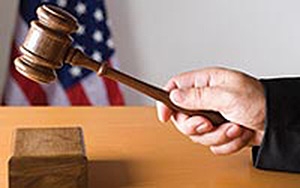 LinkedIn has agreed to pay $13 million to resolve a class-action lawsuit accusing it of misappropriating users' names by sending email invitations to their friends, according to court papers filed
late on Thursday.
LinkedIn has agreed to pay $13 million to resolve a class-action lawsuit accusing it of misappropriating users' names by sending email invitations to their friends, according to court papers filed
late on Thursday.
The agreement calls for the company to pay $10 to each LinkedIn user who submits a claim; if more people than expected file claims, LinkedIn will add up to another $750,000
to the fund. But if so many users file claims that paying them wouldn't be feasible, the money will be donated to three organizations -- Access Now, the Electronic Privacy Information Center, and the
Network for Teaching Entrepreneurship.*
The attorneys who brought the case will receive up to $3.25 million in legal fees.
“The settlement is the product of extensive
and complex arms-length negotiations between the parties and their experienced and informed counsel, and is fair, reasonable and adequate given the claims, the alleged harm and the parties’
respective litigation risks,” class counsel argues in a motion seeking preliminary approval of the deal.
advertisement
advertisement
The attorneys add that the deal "will provide LinkedIn's users with a timely and
meaningful cash recovery.”
If accepted by U.S. District Court Judge Lucy Koh in the Northern District of California, the deal will resolve a battle dating to September of 2013, when a
group of LinkedIn users accused the company of violating the federal wiretap law by
“hacking” into their email accounts, in order to harvest their friends' addresses.
The users -- including a former manager of international advertising sales for The New York
Times -- also alleged that LinkedIn misappropriated their names and identities by sending a series of three email invitations to their friends. While the users acknowledged that the company asked
them for permission to grow their networks, they argued that the service made only “cryptic disclosures” before harvesting email addresses and sending invitations.
Last year, Koh
narrowed the case by rejecting the hacking claim on the grounds that the users agreed to transmit an initial email invitation to their friends. But she allowed the consumers to proceed with claims
regarding the two follow-up emails.
LinkedIn subsequently argued that it had a free-speech right to send those follow-up emails, on the theory that the service helps people to communicate with
each other. Koh rejected that argument last November, following which LinkedIn and the consumers agreed to resolve the case out of court.
The settlement also requires LinkedIn to revise some
of its prior practices.
Among others, LinkedIn will change the disclosures it makes when asking people to grow their networks via the automated “Add Connections” feature. Now, the
company will explicitly state that its “Add Connections” tool imports people's address books. LinkedIn also will let people who use Add Connections wield more control over which contacts
receive the automated invitations and follow-up emails.
*This article has been updated to reflect the correct settlement terms.